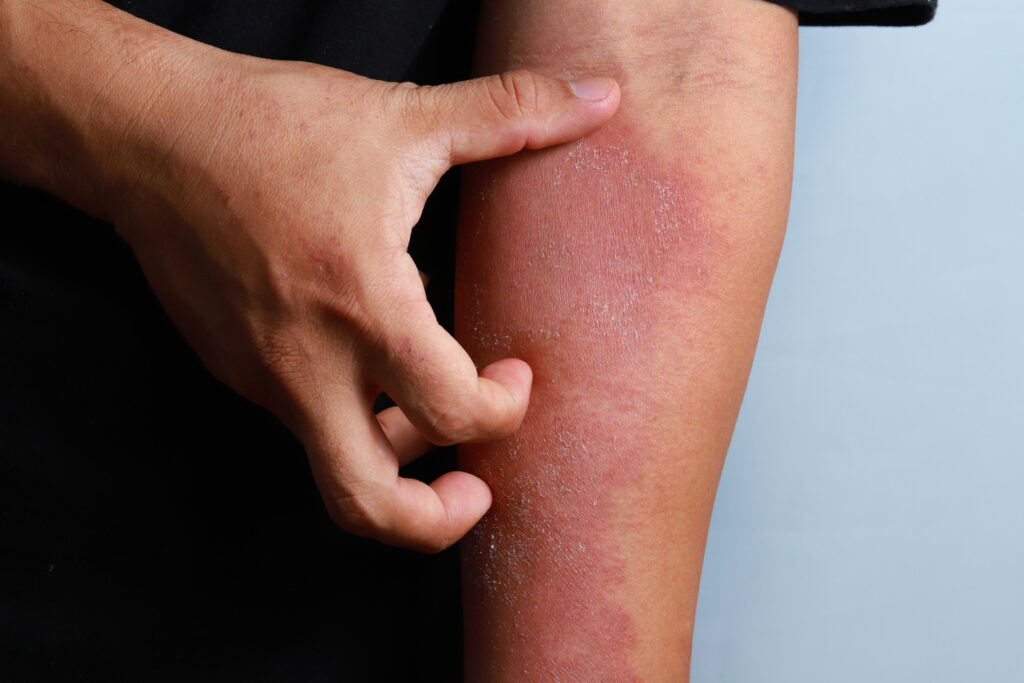Rocatinlimab, an investigational T-cell rebalancing therapy targeting the OX40 receptor, showed sustained efficacy in improving skin clearance and itch in moderate-to-severe atopic dermatitis (AD), with a favorable safety profile, according to topline findings from the Phase 3 ASCEND trial.
The ongoing ASCEND study, which includes approximately 2,600 patients, is designed to evaluate the long-term safety and efficacy of Amgen and Kyowa Kirin Co., Ltd.’s rocatinlimab (150mg and 300mg) administered every four or eight weeks in individuals who completed a previous ROCKET program trial (IGNITE, HORIZON, SHUTTLE, ASTRO, ORBIT, or VOYAGER). This analysis focused on adults who completed the first 24 weeks of therapy in a previous ROCKET trial and continued in ASCEND for an additional 32 weeks.
Primary Endpoint
The primary endpoint of the study was to evaluate the long-term safety of rocatinlimab and is descriptive in nature. The most frequent treatment-emergent adverse events (AEs) in adults included upper respiratory infections (including nasopharyngitis and pharyngitis), aphthous ulcers, headache, influenza, cough, and rhinitis, which were observed in previous ROCKET trials. The discontinuation rate due to AEs was low across the adult rocatinlimab-treated cohorts.
Across the Phase 3 ROCKET program including ASCEND, the incidence of gastrointestinal ulceration events with rocatinlimab to date is less than 1 per 100 patient-years. The ASCEND study is ongoing and continues to evaluate the long-term safety and efficacy of rocatinlimab up to 104 weeks in adult and adolescent patients with moderate-to-severe AD.
The secondary endpoints of the study were evaluated in adults who achieved a clinical response (Eczema Area and Severity Index (EASI) 75 or Validated Investigator’s Global Assessment for Atopic Dermatitis (vIGA-AD) 0/1 without rescue use at Week 24) in either the HORIZON or IGNITE trials and were re-randomized in the ASCEND study.
Continued Benefits
The majority of patients in this sub-population, who continued receiving rocatinlimab monotherapy either with Q4W or Q8W dosing, reported continued therapeutic benefit at one year of treatment across measures of improvement in skin clearance, itch, disease extent, and severity.
“Atopic dermatitis is a heterogeneous disease where many patients still lack adequate control with current therapies,” says Jay Bradner, MD, Executive Vice President of Research and Development at Amgen, in a news release. “These findings add to our understanding of the role OX40 inhibition can play in addressing the underlying drivers of this chronic disease and provide further information on rocatinlimab’s durability of response and long-term safety profile, which we will continue to monitor.”


